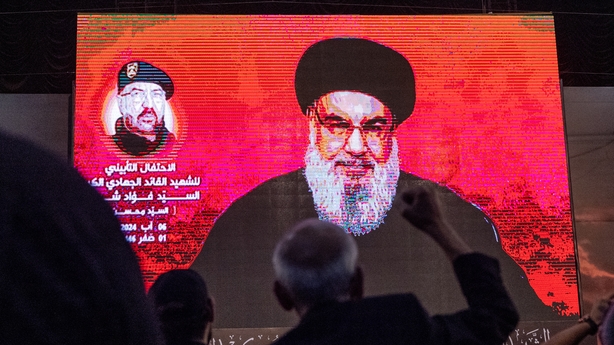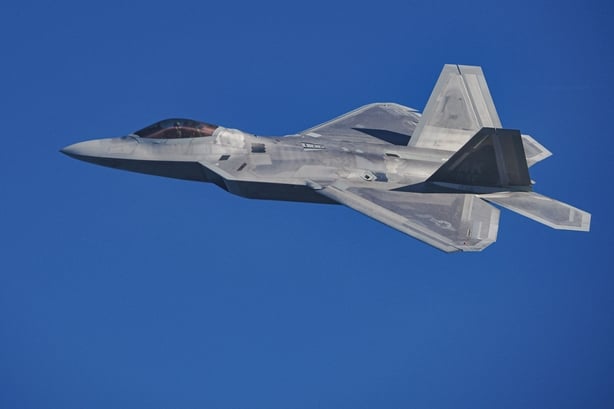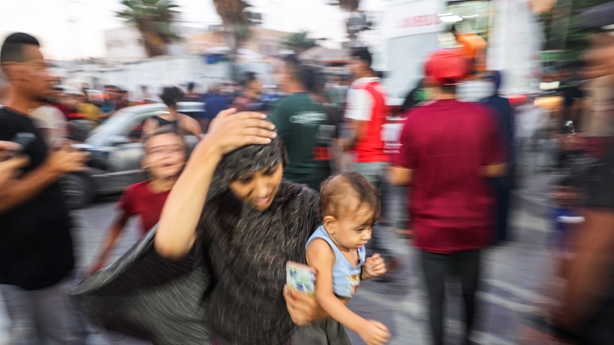The risk of the Israel-Hamas war sparking a wider regional conflict has been rising for months.
And this week it looked like the tinderbox was set to ignite.
Hezbollah vowed to retaliate after the assassination of its commander Fuad Shukr in Lebanon, while Iran's supreme leader warned Iran would "avenge the blood" of Hamas leader Ismail Haniyeh, killed in a dawn attack in the Iranian capital Tehran.
As the finger of blame pointed at Israel, it braced for attack.
Israeli Prime Minister Benyamin Netanyahu warned that Israel would "exact a very heavy price" against any "aggression" against it.
With tension mounting, diplomats at the United Nations in New York held their breath.
Senior UN officials scrambled, urging cool heads to prevail.
UN Secretary-General Antonio Guterres called the killings a "dangerous escalation," and called for the international community to work together to "urgently prevent any actions that could push the entire Middle East over the edge, with a devastating impact on civilians."
UN human rights chief Volker Turk said he too was "deeply worried" about the rising risk of a wider conflict in the Middle East.
"I…plead with all parties along with those states with influence to act urgently to de-escalate what has become a very precarious situation," he said in a statement.
Mr Turk said that civilians had endured unbearable pain and suffering as a result of bombs and guns.
"Everything, and I mean everything, must be done to avoid this situation spiralling further," he said.
But is anyone listening?

Leaders in the region struck a defiant posture.
Hezbollah warned Israel "our response is coming."
Israel's defence minister Yoav Gallant said Israel would fight Hezbollah "with all its might" if it continued its "aggression" across the border.
Israel and the Iranian-backed Hezbollah armed group have exchanged near daily fire since last October.
Tens of thousands of civilians have been evacuated from both northern Israel and southern Lebanon over the past ten months.
The Iranian Revolutionary Guards' Quds Force, meanwhile, repeated the remarks made by Iran’s Supreme Leader Ali Khamenei, saying it was preparing to "avenge the blood" of the Hamas leader.
A blitz of diplomatic activity by western and regional officials appeared to stall any immediate retaliation.
US Secretary of State Antony Blinken called this a "critical moment."
"We are engaged in intense diplomacy, pretty much round-the-clock, with a very simple message - all parties must refrain from escalation," he said.
Although it wasn't just talk.
US diplomacy was accompanied by a show of military force as a fleet of US Airforce stealth fighter jets - F-22 Raptor jets - conspicuously flew to the Middle East.

The US Central Command said in a post on X that it was part of "posture changes in the region to mitigate the possibility of regional escalation by Iran or its proxies."
The United States and Iran do not maintain diplomatic relations but use back channels to communicate.
The Swiss Embassy in Tehran acts as a conduit for messages between them.
And more directly, US allies in the region - like Jordan - have also been busy engaging with Iran this week.
Jordan's Foreign Minister Ayman Safadi made a rare visit to Tehran, to call for calm, although it did little to temper the rhetoric of his Iranian interlocutor President Masoud Pezeshkian, who reportedly told his visitor that the assassination of Ismail Haniyeh was a "major mistake by the Zionist regime that will not go unanswered."
But Mr Safadi made it clear that Jordan would not allow Iranian missiles to pass through Jordanian airspace.
"We cannot speak to private diplomatic engagement, but we and our partners share the goal of de-escalating tensions in the region," a spokesperson for the US mission to the United Nations told RTÉ News.
"President [Joe] Biden’s national security team, including the US Mission to the UN, continues robust engagement on this front," the spokesperson added.
"We are also intently focused on pushing for that ceasefire deal to bring hostages home and end the war in Gaza, which would significantly lower tensions in the region," the spokesperson said.
But it may already be too late for that, according to Trita Parsi of the Quincy Institute for Responsible Statecraft in Washington DC.
"We may have moved beyond the point in which a Gaza ceasefire can prevent an Iranian retaliation," he told RTÉ News.
"It's worth exploring, but the reality is that after the months enabling Israel's bombardment of Gaza, Biden has little credibility in terms of offering a ceasefire in return for Iranian restraint," he said.
There is also the question of whether Iran's leadership may calculate that their last retaliation did not go far enough.
In April, Israel struck the Iranian consulate in Damascus, Syria, killing eight Islamic Revolutionary Guard officers. Iran launched hundreds of drones and missiles in response, most of which were intercepted before they reached Israeli territory (some by the Jordanian air force, which would likely do the same again.)

The consensus among diplomats here at the UN is that regional powers, including Iran, do not want to see a wider escalation. Iran’s powerful backers - Russia and China - are equally averse to a conflict that would affect their economic and strategic interests in the Middle East.
But the longer the Israel-Hamas war rages, the more likely it becomes.
Nearly 40,000 Palestinians have been killed by Israel’s ten-month bombardment of Gaza, according to the Hamas-run Ministry of Health, most of them women and children.
The UN estimates that nearly two million people - 90% of the population - are internally displaced and half a million people face catastrophic levels of food insecurity.
The resumption of ceasefire talks following diplomatic pressure from the US, Egypt and Qatar offered a glimmer of hope at the end of another extremely tense week.
Talks will continue within the framework put forward by President Biden at the end of May and subsequently endorsed by the UN Security Council in a rare moment of agreement among the 15-member body.
But we’ve been here before.
The question is whether talks can progress fast enough now to avoid the conflagration everyone fears.







